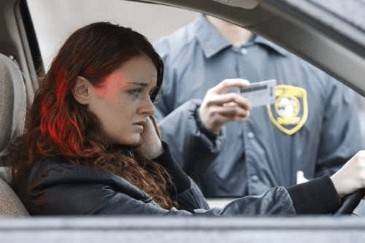Who Is to Blame in a Vehicle Collision?
Two drivers get into an accident. One driver is sober, while the other driver was under the influence of alcohol. However, the sober driver failed to use their turn signal when switching into the DUI driver’s lane, causing a collision. When both drivers safely pull over and get out of their vehicles, the sober driver notices that the other driver seems intoxicated, and places blame on them. The DUI driver, however, blames the sober driver for failing to use their turn signal.
So, who’s at fault?
 There are 12 no-fault states in the U.S., meaning drivers in those states are not required to determine who’s at fault when filing their insurance claims. West Virginia, however, is a fault-based state to a certain degree, meaning both parties must agree upon who is responsible for the damages before making their insurance claim.
There are 12 no-fault states in the U.S., meaning drivers in those states are not required to determine who’s at fault when filing their insurance claims. West Virginia, however, is a fault-based state to a certain degree, meaning both parties must agree upon who is responsible for the damages before making their insurance claim.
However, since West Virginia operates on a modified comparative fault system, drivers must determine the degree of fault for causing an accident. Referring to the example above, the courts may declare the sober driver is 85% responsible for the accident, while the buzzed driver is 15% responsible, depending on the details of the case and both parties’ driving and criminal records.
What to Do Next
If you get in a collision, it’s important to remember to avoid saying “sorry” to the other party, otherwise, you’re technically admitting fault, even though you are expressing regret and being polite. Collect the other driver’s information, including their name, phone number and license plate number, and record the incident by taking photos and videos. Call 9-1-1 and report the accident if there’s any damage to your vehicle and/or person.
Then you must file an insurance claim. But to do that, you must determine the degree to which the other party is at fault. With the help of an experienced West Virginia DUI lawyer, such as Harley Wagner, your chances of securing maximum compensation can potentially increase since a trained legal professional knows what to evaluate in an accident scene and how to successfully navigate the insurance process.
Filing an Insurance Claim
You have three options following your car accident:
- File a first-party claim: This claim is a means for you to get compensated from your insurance company for your damages. Once you file your claim, your insurance company will deal with the at-fault party’s insurance company.
- File a third-party claim: You can send a letter yourself or through the help of a lawyer to the responsible party’s insurance company claiming that you sustained damages as a result of their policyholder’s negligent or reckless driving.
- File a lawsuit: The worst-case scenario is to file a lawsuit against the at-fault party. This option is ideal if both drivers cannot agree on the value of the insurance claim. A lawsuit can be highly complex yet highly effective when it comes to getting the compensation you deserve.
Contact a Skilled DUI Defense Attorney
There is no better time to contact Harley Wagner than now. If you were driving under the influence at the time of your accident but was not at fault for causing the collision, you may end up facing a messy legal situation. Not only can you get charged for a DUI, but your driving points may accumulate, your insurance rates may skyrocket and your license may get suspended.
These situations are complex; if an accident didn’t happen in the first place, you likely wouldn’t face a DUI accusation. But accidents like these happen more often than you might think. Protect your driving record and privileges at all costs by contacting (304) 461-6000 to get started.
